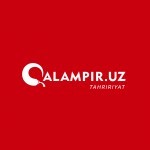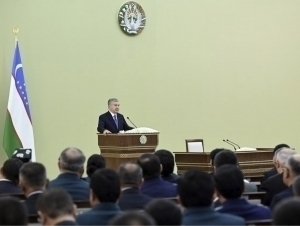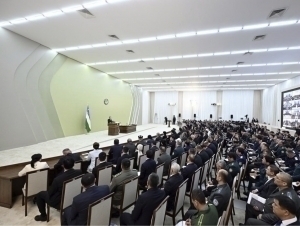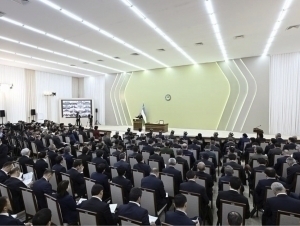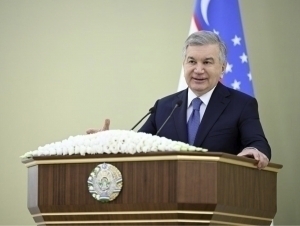The TRNC controversy. Has Central Asia turned its back on Turkey?
Review
−
18 April 2025 12399 15 minutes
Kazakhstan, Kyrgyzstan, Tajikistan, Turkmenistan, and Uzbekistan, along with the European Union (EU), have agreed not to recognize the Turkish Republic of Northern Cyprus (TRNC). This was reflected in a declaration adopted at the first Central Asia–EU summit held in Samarkand on April 3–4 this year. For Turkey, this move is being viewed as a political blow. But why?
The matter lies in the joint statement made after the summit, where the Presidents of Kazakhstan (Kassym-Jomart Tokayev), Kyrgyzstan (Sadir Japarov), Tajikistan (Emomali Rahmon), Turkmenistan (Serdar Berdimuhamedov), and Uzbekistan (Shavkat Mirziyoyev), as well as European Council President Antonio Costa, European Commission President Ursula von der Leyen, and European Bank for Reconstruction and Development President Odile Renaud-Basso, signed a document. Paragraph 4 of that document emphasized a shared commitment to respecting the sovereignty and territorial integrity of all states in international and regional forums and to avoiding actions that contradict those principles.
“In the same spirit, we reaffirmed our commitment to UN Security Council Resolutions 541 (1983) and 550 (1984). We stressed that participation in regional cooperation structures should be guided by these international principles, which are of great importance in the development of relations between the EU and Central Asia. In this regard, Turkmenistan reiterated its commitment to implementing its international obligations in strict accordance with the principles of permanent neutrality,” the statement reads in paragraph 4.
What are Resolutions 541 and 550 about?
Let us now turn our attention to the UN Security Council resolutions referenced in the statement.
Resolution 541 was adopted by the UN Security Council on November 18, 1983, with 13 votes in favor, Pakistan voting against, and Jordan abstaining. The resolution called on all states to respect the sovereignty, independence, territorial integrity, and non-alignment of the Republic of Cyprus and not to recognize any government of the island other than the Government of the Republic of Cyprus. It was passed in response to the declaration of independence by the Turkish Republic of Northern Cyprus on November 15, 1983.
As for Resolution 550, it was adopted on May 11, 1984, by 13 member states. Pakistan voted against it, and the United States abstained. The resolution reads:
“Condemns all separatist actions, including the so-called exchange of ambassadors between Turkey and the Turkish Cypriot leadership, declares them illegal and invalid, and calls for their immediate withdrawal; calls once again on all states not to recognize the so-called ‘Turkish Republic of Northern Cyprus’ established as a result of the separatist actions, not to cooperate, and not to provide any assistance to the aforementioned separatist structure; calls on all states to respect the sovereignty, independence, territorial integrity, unity and non-alignment policy of the Republic of Cyprus; considers any attempt to settle any part of Varosha (a quarter in the city of Famagusta, Cyprus – ed.) by non-residents unacceptable, and calls for the transfer of this territory to the administration of the United Nations.”
It seems that the three Central Asian countries that are members of the Turkic States Organization (TSO)—Kazakhstan, Kyrgyzstan, and Uzbekistan—along with Turkmenistan, which holds observer status, have effectively rejected the TRNC, despite gathering around the same table with Turkey, a key TSO member.
Illusions that have become a mirage
The Central Asian states within or associated with the TSO, despite numerous appeals by Turkish President Recep Tayyip Erdoğan, have entirely abandoned the idea of recognizing the Turkish Republic of Northern Cyprus.
Following the imposition of sanctions on Russia due to the war in Ukraine, Central Asia has significantly deepened its ties with the European Union. Strategic partnerships have been forged, and deals made involving valuable and critical raw materials. The EU sees Central Asia as a source of opportunity, while both sides remain committed to resolving the Russia–Ukraine conflict through political and diplomatic means.
The adoption of this declaration also raises questions about the future of the TRNC, which currently holds observer status in the Turkic States Organization alongside Hungary and Turkmenistan. With four Turkic Central Asian countries opposing Turkey's position on Cyprus, many in Turkey are asking: What kind of Turkish solidarity exists in foreign policy?
This is now a serious issue under debate in Turkey.
Arda Zentürk, a well-known and seasoned international journalist from Turkey, voiced his concerns on this issue through his YouTube channel, addressing Foreign Minister Hakan Fidan directly.
“I don’t understand what Ankara is doing. I am completely confused… How can we allow such a geopolitical disaster, Mr. Hakan Fidan? I have never seen anything like this in my 50 years of work. We are engaging in a real political betrayal. These four Turkic countries confirmed with their signatures that they do not recognize the TRNC. They have joined forces with Europe, the United States, and Russia, who call Turkey an invader in Cyprus. If these countries sign resolutions rejecting the TRNC, the Turkic States Organization will lose all meaning. Close [this organization]! This is a slap not only to the Turkish Cypriots but also to Turkey itself. We are not joking. We will not allow the recognition of the island, where the blood of Turkish soldiers was shed, as the territory of another state. This is not just a diplomatic mistake, but a betrayal,” he said.
So far, Turkish President Recep Tayyip Erdoğan has not commented on the joint document signed by the Central Asian leaders and the EU affirming non-recognition of the TRNC. However, Azerbaijani President Ilham Aliyev has already reacted and promised to support global recognition of the TRNC.
“We are among the countries actively fighting for the recognition of the Turkish Republic of Northern Cyprus. President Ersin Tatar participated in the informal summit in Shusha. The flag of Northern Cyprus was flying at this meeting. We are always on the side of our brothers: we will help them defend their state,” said the Azerbaijani leader.
Former Turkish Defense Minister and current Chairman of the National Defense Commission of the Turkish Parliament Hulusi Akar also called on Turkic states to openly and firmly recognize the TRNC at a meeting of National Defense and Security Commission Chairs of the Turkic States Parliamentary Assembly (TURKPA) held in Baku on April 15.
“I believe that the same solidarity will be shown for the Turkish Republic of Northern Cyprus as was the case during Azerbaijan’s victory in Karabakh. We believe that this will be an indicator not only of the Turkish Cypriots’ search for justice but also of the Turkic world’s will for integration,” he stated.
As for Ersin Tatar, the president of the unrecognized Turkish Republic of Northern Cyprus, he responded to the matter with notable restraint. He stated that the agreements between Central Asian states and the EU—whether member or observer states of the TSO—are understandable, and each country acts according to its own national interests.
“This situation probably arose because they entered into such a process in the context of their relations with the EU. This is normal—after all, these countries have different projects with the EU and have their interests and benefits from the private sector and the state. As noted, there are economic projects, financial contributions, as well as commercial opportunities that the EU can provide in various commercial dimensions,” said Tatar.
Central Asia and Cyprus
Although the Central Asian states have not recognized the Turkish Republic of Northern Cyprus (TRNC), they have maintained diplomatic dialogue with the Republic of Cyprus.
For instance, on December 19, 2024, Uzbekistan accredited an ambassador to Cyprus for the first time. Uzbek Ambassador Abat Fayzullayev, who is based in Rome, presented his credentials to Cypriot President Nikos Christodoulides. Just two days later, on December 21, he met with Stavros Stavrou, President of the Cyprus Chamber of Commerce and Industry, following which the inaugural meeting of the Cyprus–Uzbekistan Business Association was held.
On February 21, 2025, Kazakh Ambassador Nikolay Zhumakanov presented his credentials to the President of Cyprus. Then, on March 6, Kazakh Foreign Minister Murat Nurtleu met with his Cypriot counterpart Konstantinos Kombos during an official visit to the island. Nurtleu announced that Cypriot investments in Kazakhstan in 2024 had reached $227 million.
Clearly interested in strengthening economic cooperation with Greek Cypriots, Nurtleu also raised the possibility of direct flights between the two countries and met with Costas Markides, President of the Cyprus–Kazakhstan Business Association.
Meanwhile, Kyrgyzstan signed an agreement with Cyprus on September 27, 2024, exempting holders of diplomatic passports from visa requirements. The agreement was signed by Foreign Minister Jeenbek Kulubayev and Cypriot Foreign Minister Konstantinos Kombos on the sidelines of the 79th session of the UN General Assembly in New York.
Turkmenistan is also keeping pace with other Turkic states in Central Asia. On March 31, 2025, Toyli Komekov, the Turkmen ambassador based in Rome, presented his credentials to the President of Cyprus.
Turkey and the Turkish Republic of Northern Cyprus
Cyprus has remained ethnically divided since the Turkish military intervention in 1974, which followed a coup by supporters of unification with Greece. Following the military operation, Turkey took control of around 37% of the island’s territory, and in 1983, the Turkish Republic of Northern Cyprus was proclaimed. However, it has only been recognized by Turkey. Today, Turkey maintains a military presence of 40,000 troops in Northern Cyprus. The southern portion of the island, mainly inhabited by Greek Cypriots, remains under the control of the Republic of Cyprus.
The TRNC relies heavily on Turkish economic, political, and military support. It is considered by the Republic of Cyprus and the UN as an occupying force. Despite this, the TRNC holds observer status in both the Organization of Turkic States (OTS) and the Organization of Islamic Cooperation.
The TRNC has a population of approximately 300,000 and covers an area of 3,355 km². The majority of the population is ethnically Turkish, though Greek Cypriots and Lebanese Maronites also live in enclaves. The capital, Lefkoşa (Nicosia), is split between the Republic of Cyprus and the TRNC.
The island is divided by a UN-patrolled buffer zone, which separates the Turkish north from the Greek-controlled south.
Turkey’s support for the TRNC has remained consistent for over four decades, particularly under President Recep Tayyip Erdoğan’s leadership. In many ways, the burden of this issue has extended to other Turkic countries, especially Uzbekistan.
Uzbekistan became a full member of the Organization of Turkic States in 2019. On November 10–11, 2022, Samarkand hosted the 9th OTS Summit, chaired by President Shavkat Mirziyoyev and attended by leaders including Ilham Aliyev, Kassym-Jomart Tokayev, Sadyr Japarov, Recep Tayyip Erdoğan, Hungarian Prime Minister Viktor Orbán, and Turkmenistan’s Gurbanguly Berdimuhamedov.
At that summit, Erdoğan made a striking announcement. He declared that the TRNC had joined the OTS as an observer state, expressing his appreciation to the leaders of the Turkic states for this development.
“We have accepted the Turkish Republic of Northern Cyprus as an observer state in our organization, fulfilling the requirements of the Law of Brotherhood. By doing this, we have demonstrated to our Cypriot brothers, who are an integral part of the Turkic world, that they are not alone. I offer my special thanks to each of you, my dear brothers, for showing the will to unite,” Erdoğan said.
Following this statement, then-Foreign Minister Mevlüt Çavuşoğlu echoed the news on Twitter, citing Erdoğan and reaffirming Turkey’s commitment to support the TRNC.
However, on November 11, 2022, Uzbekistan’s Foreign Minister Vladimir Norov refuted these claims.
“No separate decision was signed regarding Northern Cyprus as part of the summit’s outcomes. Uzbekistan strictly adheres to the principles of international law, particularly on matters of sovereignty, independence, and territorial integrity. There can be no question of recognizing Northern Cyprus as an independent state,” Norov stated.
Contrary to Norov’s claim, a statement on the OTS website confirmed that the TRNC had indeed been granted observer status. This was further affirmed in an interview with the organization’s Secretary General, Kubanichbek Omuraliev, published by Anadolu Agency a week later.
“The recognition of the Turkish Republic of Northern Cyprus as an observer in the OTS is an important step toward unifying the Turkic world,” Omuraliev said.
Omuraliev, who officially took office on November 16, 2022, confirmed the TRNC’s observer status and refuted Norov’s earlier denial. He emphasized that Turkish Cypriots are an “integral part” of the Turkic world.
“As with our other member and observer states, we will continue to work with the TRNC in pursuit of peace, stability, and development in our region and the world,” he said.
Erdoğan’s actions
On March 16, 2023, an extraordinary OTS summit was held in Ankara in response to the devastating earthquakes that hit Turkey the previous month. Erdoğan hosted the event, which was attended by leaders from Kazakhstan, Kyrgyzstan, Uzbekistan, Azerbaijan, Hungary, Turkmenistan, and TRNC President Ersin Tatar. The leaders posed for a group photo, symbolizing unity.
During the summit, Erdoğan once again called for recognition of the TRNC.
“With the TRNC’s accession, our family council has grown even stronger. As an organization, we have demonstrated strength and determination to our Turkish Cypriot brothers. We support them and will continue to fight for the recognition of the TRNC and for lifting the restrictions imposed on them,” Erdoğan said.
In September 2023, Erdoğan visited Azerbaijan and told journalists aboard his return flight that he had discussed the TRNC issue with President Ilham Aliyev. He also revealed hopes to see the TRNC gain observer status in the Economic Cooperation Organization (ECO).
“A meeting of the Turkic States Organization is coming up. Azerbaijan wants to invite TRNC President Ersin Tatar. Another meeting is scheduled in Kazakhstan on November 3, and we hope to see the TRNC recognized there as an observer. I thank President Aliyev for his firm stance on this issue and his desire to see the TRNC flag fly,” Erdoğan said.
At the 10th OTS Summit in Astana on November 2–3, 2023, Erdoğan again pushed for TRNC recognition.
“Our Family Council took a historic step at the Samarkand summit by unanimously granting the TRNC observer status. I thank you again for your support,” Erdoğan told the gathered leaders.
He added that while this decision might have isolated the Turkic world, it sent a powerful message: Turkish Cypriots are not alone.
The summit’s final declaration noted that the TRNC, as an integral part of the Turkic world, had been granted observer status in the Parliamentary Assembly of Turkic States, the Union of Turkish Chambers of Commerce and Industry, and the Economic Cooperation Organization.
On November 8–9, 2023, Tashkent hosted the 16th ECO Summit. TRNC President Ersin Tatar visited Uzbekistan, though official reports did not confirm his participation. The Presidential Administration of Uzbekistan’s summit announcement made no mention of a TRNC representative.
However, Tatar held bilateral meetings with Erdoğan, then-Pakistani Prime Minister Anwaar ul Haq Kakar, and ECO Secretary General Khusrav Noziri.
On December 4, 2023, Tatar visited Kyrgyzstan and met with President Sadyr Japarov in Bishkek. He briefed Japarov on the current status of the Cyprus issue and urged support for a two-state solution. He also asked Kyrgyzstan to expand its support for the TRNC.
Notably, Japarov wore light, informal attire during the meeting, suggesting it was not an official engagement.
On July 6, 2024, the informal summit of Turkic state leaders was held in Shusha, Azerbaijan. For the first time, Ersin Tatar sat at the presidential table, and the TRNC flag was displayed at the venue.
At the next OTS summit in Bishkek on November 6, 2024, Tatar was again included. As host, Japarov gave him the floor without fanfare, addressing him only by name.
In his speech, Erdoğan expressed hope that the TRNC would one day become a full member of the organization.
Why did Central Asia choose the European Union?
The next summit of the Turkic states is scheduled for November. It remains unclear whether the TRNC issue will be raised again, or whether Erdoğan will once again bring Tatar to the summit.
At this stage, one pressing question emerges: Why have the Central Asian states opted to align with Europe, distancing themselves from the once-warm OTS cooperation and Erdoğan’s diplomacy?
Experts suggest that Astana, Tashkent, Bishkek, and Ashgabat recognize that closer alignment with Ankara could complicate their relationships with Brussels. Perhaps if Turkey’s current political and economic conditions—and Erdoğan’s position—were stronger, the Turkic world would not be forced to choose between two opposing camps.
But now, Erdoğan has far more pressing matters to deal with than the UN Security Council: stabilizing Turkey’s economy, rebuilding political authority, regaining public trust after electoral setbacks, and confronting an opposition backed by the EU and the UK.
Live
All